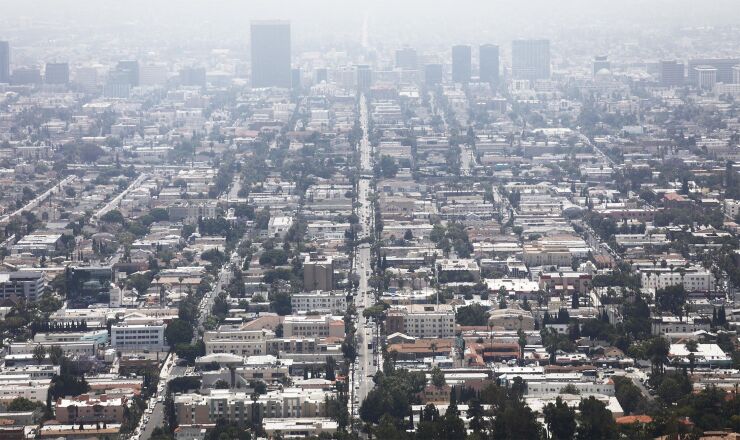The world's biggest climate-finance alliance has sought to dismiss reports that a number of Wall Street banks are threatening to leave, as it races to bring its house in order in the run-up to next month's COP27 climate summit.
In a statement to Bloomberg News on Saturday, a spokesperson for the Glasgow Financial Alliance for Net Zero said the group has "received no indication from any of our members that they intend to leave."

GFANZ, which brings together over 500 finance firms managing more than $135 trillion of assets, has faced possible
Tensions soared after a United Nations-backed group, Race to Zero, earlier this year proposed such terms as a necessary condition for net-zero claims to be credible. That language was subsequently softened, and in its statement on Saturday, GFANZ said each suballiance of the group is "subject only to their own governance structures," essentially giving them the freedom to ignore such proposals.
Mark Carney, GFANZ co-chair, has already publicly admonished Race to Zero for going "too far."
Jakob Thomae, an advisory board member of GFANZ, says he expects parts of GFANZ will eventually sever ties with Race to Zero and seek a more tailored decarbonization methodology to appease members. But there are already concerns being raised in some corners that the ostensible sidelining of science represents a worrying development. Al Gore, the former U.S. vice president turned climate activist, last month warned that investors are growing increasingly impatient with evidence of potential "greenwashing" amid signs that net-zero pledges made by some members of the financial industry aren't credible.
The GFANZ spokesperson said that while the alliance and its subgroups are affiliated with the Race to Zero, the seven suballiances — which cover insurance to banking and asset management — are independent organizations with their own governance structures. As such these subgroups "are responsible for managing accountability of their members" and "any updates to the nature of their commitments rest with the alliances."
Saturday's statement merely reflects what had been the existing governance structure, GFANZ said, adding that many of its sub-alliances are UN-convened, and follow rules set by the United Nations Environment Programme Finance Initiative (UNEP FI) and the UN-backed Principles for Responsible Investing (UN PRI).
But the need to reassure members of their independence from Race to Zero was made clear in recent weeks by brewing tensions, with banks behind the scenes seeking urgent clarification, according to people familiar with the process. One banker close to the situation said putting out a such a statement should be viewed as a necessary concession to Wall Street to keep the banks onside.
Allowing the suballiances, whose boards are heavily represented by the finance industry, to set their own terms is a dangerous move, according to climate nonprofits.
Lucie Pinson, executive director at environmental nonprofit Reclaim Finance in Paris, said efforts to soften the terms of GFANZ membership have the potential to "kill" the net-zero alliance.
"Even before the revelations that some banks may leave GFANZ in opposition to real climate action, there were plenty of doubts that the alliance could really deliver on net zero," she said before Saturday's statement was released. "The outcome of this issue will tell us decisively whether we should expect banks to lead the climate fight or act simply as agents of greenwashing."
For GFANZ to now maintain its ties with Race to Zero "isn't viable because the topic is too serious to let non-sector experts set the rules," said Thomae, who is also managing director of the 2 Degrees Investing Initiative in Germany. That said, the optics of leaving a UN-backed climate program will probably be ugly whatever the reason and there is a risk that its replacement may have less scientific credibility, he said.
Members of the finance industry have warned they'll only be able to achieve their net-zero goals if the governments of the countries in which they're based provide adequate frameworks that ultimately encourage their clients to step up.
"The net-zero journey for banks is very challenging," said Antoni Ballabriga, global head of responsible business sustainability at the Spanish bank BBVA. "We will only succeed in achieving this objective if our clients and other stakeholders also play their part."
The tensions around GFANZ are likely to set the tone for finance-industry talks in Egypt next month, where leaders from around the world are preparing to meet for the COP27 climate summit. The GFANZ spokesperson said the group is "focused on delivering an extensive practitioner-led work plan for transition finance at COP27."
The summit in Sharm El Sheikh takes place against a backdrop of war in Ukraine and a global energy crisis that has slowed efforts to ditch fossil fuels. Meanwhile, emissions continue to rise, with scientists estimating that the planet may now be on a warming trajectory that's twice the critical limit of 1.5C.
In an interview earlier this year, Carney, who is the former governor of the Bank of England, warned against taking too critical a stance toward the finance industry. The first step was to secure commitments, he said. The next step is "plumbing work," whereby the goal is to "operationalize those commitments into net-zero plans and transition plans," he said.
GFANZ is co-chaired by Michael R. Bloomberg, the founder of Bloomberg News parent Bloomberg LP.
— With assistance from Saijel Kishan.






